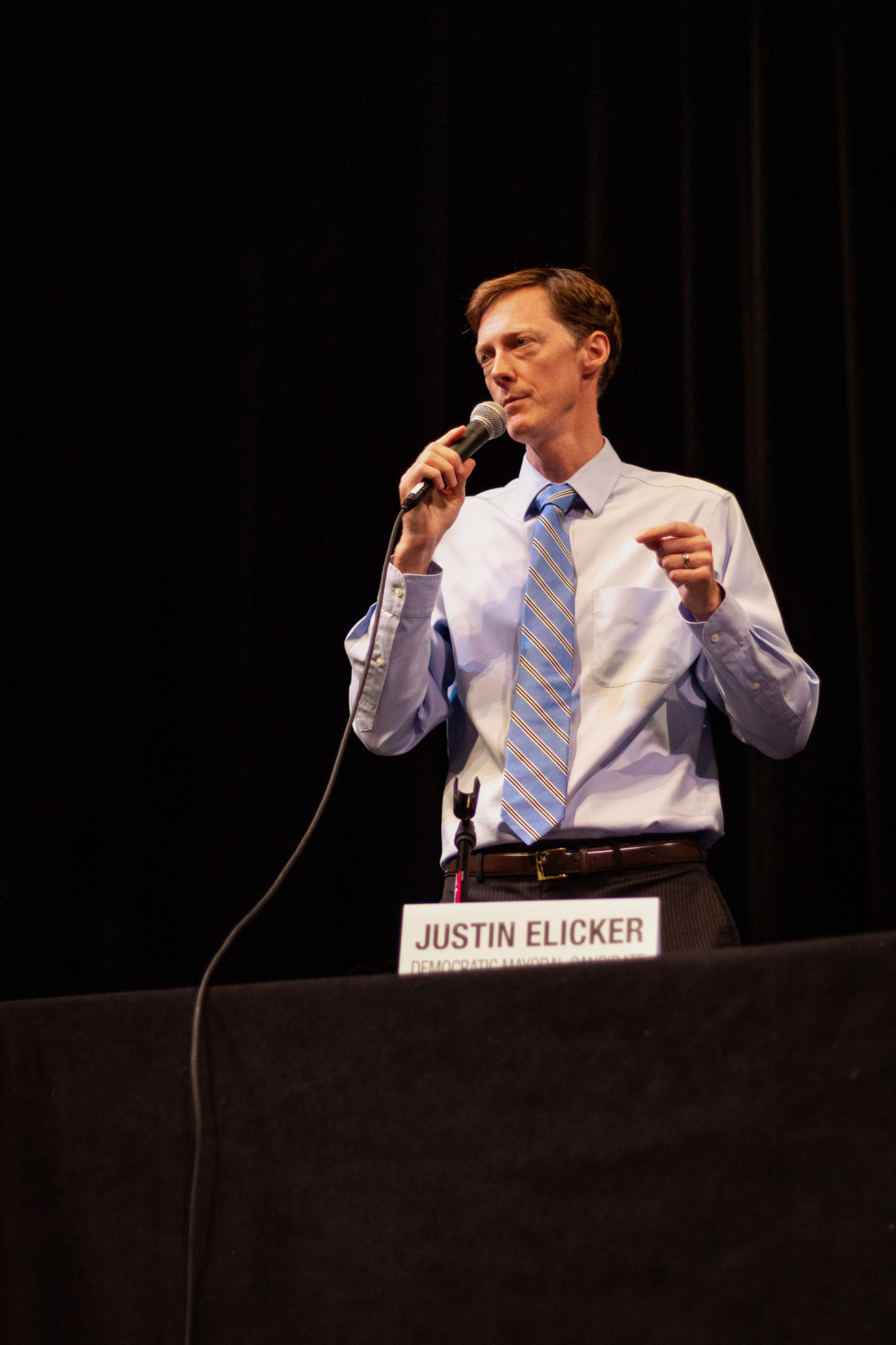
Daniel Zhao
With inauguration just one month away, Mayor-elect Justin Elicker’s transition team is soliciting feedback from New Haveners of all stripes about their visions for the Elm City.
The latest effort? A podcast series dedicated to explaining what the transition process looks like and how residents can get involved.
Elicker moved into his City Hall transition office last week after the City of New Haven, in accordance with the city charter, awarded him $75,000 to assist with the transition process. By the time he takes the reins in January, he will have held two public meetings, hosted two coffee chats and taken comment via email and public surveys. Now, he is working with Yale Carbon Change Director Casey Pickett and a team of Yale and Gateway Community College students to produce a transition team podcast. The first episode of the podcast — titled “What is a Transition Team?” — appeared on SoundCloud on Nov. 25.
“I do not have all the answers and need to have many people that have a lot of wisdom, expertise, lived experience helping guide the decisions that are made,” Elicker said in the podcast. “I’m a white guy, and I bring some experience to the table — but this city is incredibly diverse, and I cannot understand … what kind of actions City Hall can take to address the challenges that many people face in the city.”
The podcast began with an explanation of what a transition team is. The mayor-elect described his envisioned team as an “inclusive and representative” group with varied experiences and expertise. The group, headed by co-chairs Kica Matos, Sarah Miller and State Rep. Robyn Porter, will focus on goals for the first 100 days of his administration and his long-term objectives. His team is centering its efforts on 11 policy areas that span the municipal budget, government transparency, education, housing, immigration, jobs and public safety, among others.
Those same issue areas came up at the first public transition meeting, held at High School in the Community on Nov. 16., at which over 200 residents contributed to an open forum on Elm City policy. The standing room-only conversation touched on educational equity, neighborhood life and public safety, among other hot-button issues. The first installment of the podcast featured clips from this gathering and interviews with attendees.
In the podcast, Seth Poole, who ran unaffiliated for mayor in the 2019 election, lauded the meeting as an instance of “true transparency and true democracy.” Looking around the room, he saw “the people who have been doing the work,” Poole said. The cast of characters included public school teachers, alders, community activists, parents and teenagers.
Education, as it did throughout the campaign, drew a great deal of attention.
“You have a school like Hooker, which is like paradise,” Valerie Hardy — a social worker who has spent 15 years in the public school system — told her group. “And then you have Troup, which is like somewhere in Beirut.”
On the podcast, Elicker emphasized his commitment to hearing the voices of all New Haven residents and incorporating their suggestions into an ongoing transition process. While he officially assumes office at the beginning of the new year, Elicker said, the city will continue to transition long after Jan. 1.
The next public forum will be held Sunday, Dec. 8, at 2 p.m. at High School in the Community.
Mackenzie Hawkins | mackenzie.hawkins@yale.edu







